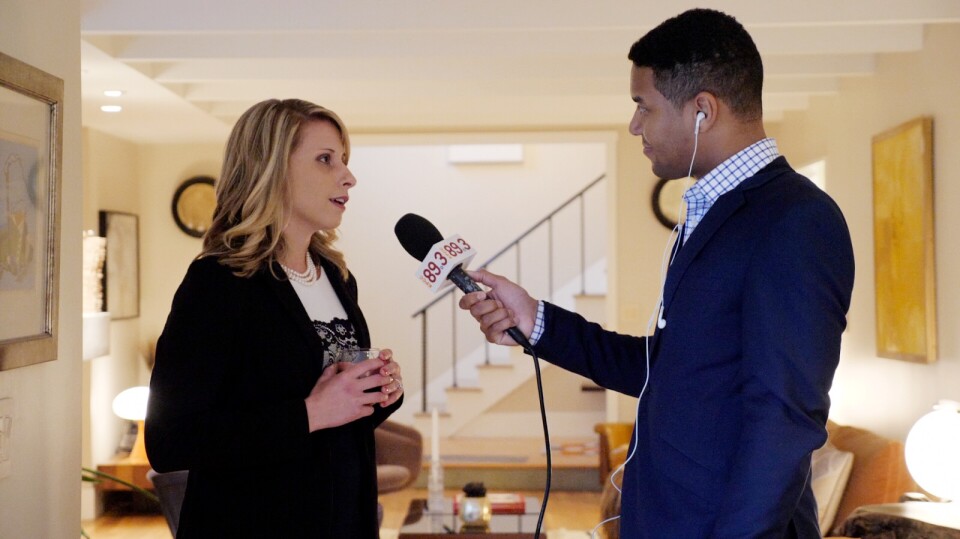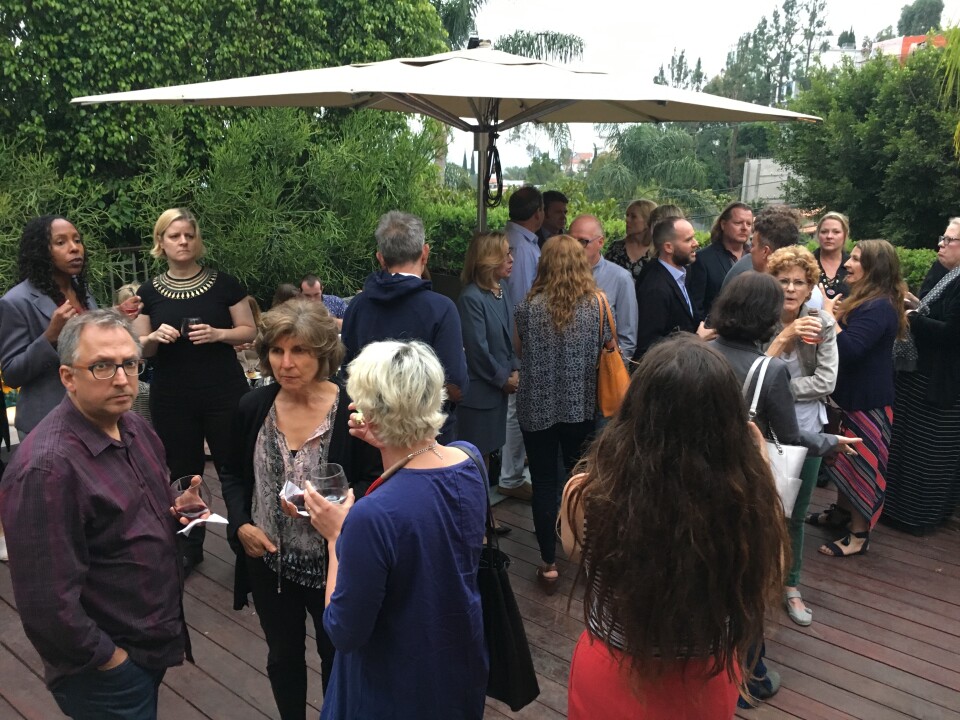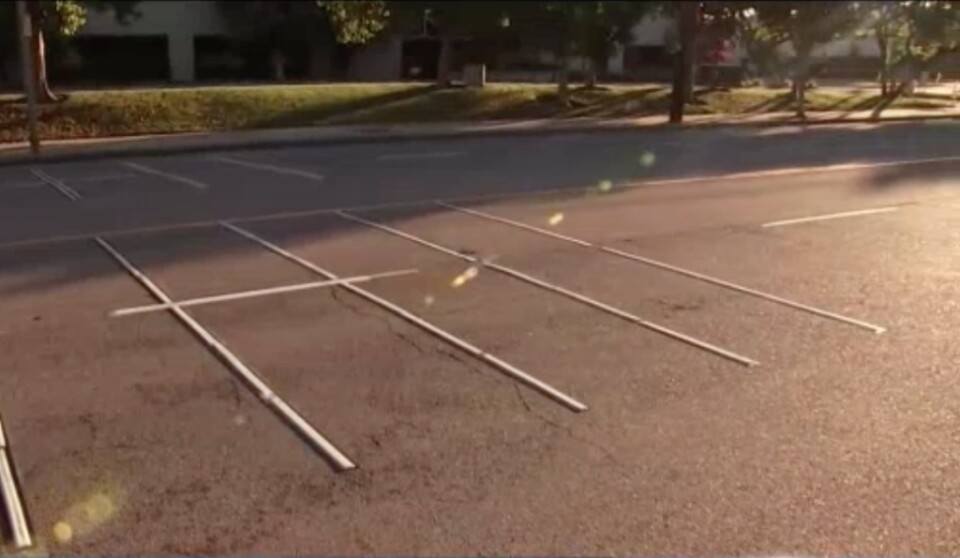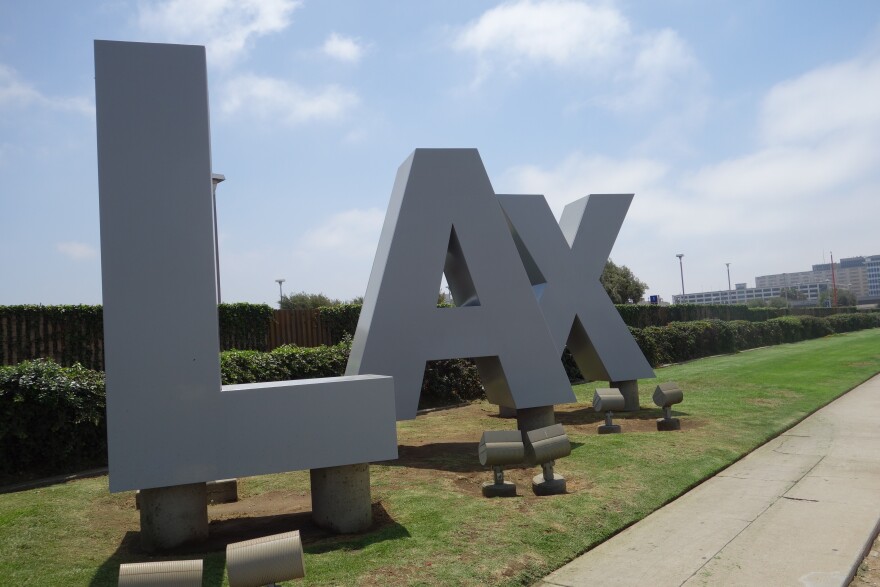Lawyers go to LAX as travel ban is reinstated, a group tries to flip the last Republican-held seat in LA County, a real estate agent mixes politics and wrestling.
Now that Trump's travel ban is partially reinstated, what's a ‘bona fide relationship’?
On Monday, President Trump's travel ban aimed at visitors from six predominantly Muslim countries was partially reinstated by a Supreme Court decision. It goes into effect today.
According to the highest court, those travelers will need to have a "bona fide relationship with any person or entity in the United States."
The State Department released specific visa guidelines last night to The New York Times. For example, a parent of a legal U.S. resident would be permitted into the country, but a grandparent would not fall under the category of "close family".
To help us decipher the revised travel ban and what it may mean in the coming months, A Martinez spoke with Talia Inlender, an attorney with Public Counsel.
To listen to the full interview, click on the media player above.
SoCal progressives are growing in numbers — but can they get a candidate elected?
California Democrats have been some of the most vocal critics of the Trump administration to date — and it's not just the lawmakers.
Ahead of next year's midterms, a growing number of grassroots organizers are throwing their support behind political outsiders.
In Southern California, one group of activists is hoping to flip the last Republican-held seat based primarily in L.A. County. They're called Indivisible 2.9, and they gathered on the deck of a private home in the Hollywood Hills earlier this month to discuss their next steps.
They're throwing their weight behind congressional hopeful Katie Hill, a 29-year-old political newcomer.

"She's young, she's smart, she's progressive, she's incredibly committed to her district in a way that I think is quite unusual," says Michele Mulroney, who is hosting the meeting. She's backing Hill as the one who can beat incumbent Republican Steve Knight. She thinks Hill's knowledge of the district and her work in the nonprofit sector more than make up for her lack of traditional political experience.
"Yeah, she's technically 29, but her wisdom goes way beyond her years, and I think it's time — frankly — to turn this country over to the young and passionate candidate," Mulroney says.
About Indivisible
Indivisible is a political advocacy group started by a few Democratic congressional staffers after the 2016 election. Their mission: resist the Trump agenda.
To do this, they put together a playbook of best practices for organizing. They say they were inspired by another, more infamous grassroots organization: the conservative Tea Party, which rose in prominence in 2009 during the Obama presidency.
Now, Indivisible members crash town halls, knock on doors and raise money – about $2 million since last year. Their website says there are 5,800 chapters of the group registered in the country, including many in California — each in places where they hope to replace a Republican with a Democrat.

Hill and her supporters (Indivisible 2.9) are after District 25 in Northern L.A. County, which includes cities like Santa Clarita, Simi Valley, Palmdale, and Lancaster.
Incumbent Steve Knight won re-election in November by about 16,000 votes — but voters in his district chose Clinton over Trump. Results like these give this group hope, but Hill faces some significant hurdles, such as campaign financing. Her campaign says it will cost $3 million to flip the seat. And money is just part of it.

Overcoming political hurdles
Democrats face long odds in Republican districts, in part, because the party itself is less than united: There's still a rift between progressives who supported Bernie Sanders and more traditional Democrats.
Another challenge: Progressives are also political outsiders. They’re up against people who know how to play the game.
"The fact is [the] Democratic Party's been around a long time. It has rules and procedures and people who have really dedicated their lives to it — blood, sweat and tears for a long time," says Matt Rodriguez, former western states director for the Obama campaign.
Rodriguez says enthusiasm is generally a good thing in politics, but it's not enough.
"Their issue set might not be enough for large swaths of voters. That means you have to work within that system. That's the system that exists. And that's gonna take time," he says.
Indivisible's organizers continue to work on plans to get their candidates elected, but it's not clear if they'll have enough support (and enough money) to put political newcomers like Hill into office.
Despite these clear challenges, the people gathered at Hill's event say they want change. And to them, change is only something an outsider can bring.
Press the blue play button above to hear the full report.
Correction: A previous version of this post stated that Hill must raise $200 thousand by June 30 to "unlock" assistance from the DCCC. This is a goal set by the campaign and not explicitly agreed upon with the DCCC.
This post has been updated.
The most hated man in Appalachian Mountain Wrestling? The Progressive Liberal
There has been a groundswell of political activism on the left ever since the election of President Trump.
But one man has found a unique way to meld politics and activism with the wrestling ring.
Daniel Harnsberger is a 36 year-old real estate agent from Richmond, VA, but when he's not selling homes he transforms into Dan Richards, "The Progressive Liberal": an anti Donald Trump/pro Hillary Clinton wrestler.
He performs for Kentucky’s Appalachian Mountain Wrestling -- a small, indie pro-wrestling company. But thanks to a recent profile in Deadspin and The Washington Post, he's drawn a lot of attention.
We talked to him about his sudden fame.
Bail system disproportionately affects people of color: report
When you're arrested, you can be bailed from jail ... As long as you've got the cash.
But some state lawmakers are pushing to get rid of bail. They say it mostly benefits the rich who can afford to get out.
And KQED's Marisa Lagos reports that it disproportionately hurts people of color, too.
Listen to the full interview using the audio player above.
Electric and gas cars would cost the same under proposed California bill
Cars that are powered by electricity can cost twice as much as their gas-powered equivalents, but the California Electric Vehicle Initiative could change that.
Democratic California Assemblyman Phil Ting has unveiled a bill in San Francisco that would reduce the cost of an electric vehicle to match a similar gas car through a state-funded rebate.
AB-1184, as it's officially known, would also make the rebate available at the time of purchase. Currently, California buyers of low and no-emissions vehicles apply for money back through the Air Resources Board's Clean Vehicle Rebate Project, which refunds buyers and lessees between $1,500 to $5,000, based on a vehicle's battery size.
The new legislation would replace the Clean Vehicle Rebate Project in an effort to encourage EV sales at a time when the federal tax credit for EVs is beginning to phase out. The $7,500 federal tax credit starts to go away once a manufacturer has reached 200,000 registered EVs in the U.S. -- a threshold both General Motors and Tesla are expected to hit in 2018.
There are currently about 300,000 registered electric vehicles in California, more than six years after the first modern-day EVs came on the market. While California is the largest market for EVs, they account for less than one percent of new vehicle sales. Those numbers fall far short of Governor Jerry Brown's goal of 1.5 million EVs by 2025 and 5 million by 2030 -- a key target in meeting the state's ambitious climate goals.
Funded with $3 billion diverted from existing sources, Ting says the bill is necessary to increase EV sales and help drive down their cost.
These plastic strips are meant to keep street racers at bay
The streets of Chatsworth just got a little louder.
Drivers in this northern San Fernando Valley neighborhood traveling on Plummer Street, between Canoga Avenue and Topanga Canyon, are now being greeted by a very loud sound. Sort of sounds like a...bap-bap-bap-bap-bap.
That's the sound tires make as they hit the so-called 'Rumble Strips.' They're the city's latest effort to deter street racers.

Mitch Englander is the councilman for the area, and he spoke to A Martinez to explain how these strips work.
The rumble strips were implemented after decades of street racing had coined the term, 'Canoga Speedway.' Two years ago, a deadly crash claimed the life of two people and injured another. It was the final straw needed to take action:
“We needed to come up with something besides just more enforcement. We had a special task force that was put together by the Los Angeles Police Department but these racers have gotten very sophisticated.”
And it seems the strips have already been effective. Traffic has slowed down in the area by 10 percent:
"We've seen already a great success. They have this little vibration, as well as a sound when you go over them. Not loud enough where it would impede or create a nuisance to the neighbors."
To hear how the strips work, what they're made of and more, click the blue play button above.
‘The Idea of You’ is a steamy beach read with substance
Putting together your summer reading list?
Well, if what you're looking for is a steamy beach read -- and yet, one with substance -- actress and author, Robinne Lee has you covered.

In her debut novel, "The Idea of You", Lee brings us into the world of thirty-nine-year-old Soléne Marchand as she falls for the charismatic Hayes Campbell.
But there's a twist. Hayes is twenty years younger than Soléne, and very, very famous.
Robinne Lee stopped by Take Two to tell us all about "The Idea of You."
To hear the segment, click on the media player above.
*You can catch Robinne Lee yourself at 6:30 PM tonight for a live reading at Diesel, A Bookstore in Brentwood.




